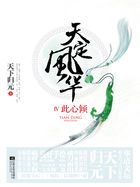The cognitive powers brought into play by this representation are here engaged in a free play, since no definite concept restricts them to a particular rule of cognition.Hence the mental state in this representation must be one of a feeling of the free play of the powers of representation in a given representation for a cognition in general.Now a representation, whereby an object is given, involves, in order that it may become a source of cognition at all, imagination for bringing together the manifold of intuition, and understanding for the unity of the concept uniting the representations.This state of free play of the cognitive faculties attending a representation by which an object is given must admit of universal communication: because cognition, as a definition of the object with which given representations (in any subject whatever)are to accord, is the one and only representation which is valid for everyone.
As the subjective universal communicability of the mode of representation in a judgement of taste is to subsist apart from the presupposition of any definite concept, it can be nothing else than the mental state present in the free play of imagination and understanding (so far as these are in mutual accord, as is requisite for cognition in general); for we are conscious that this subjective relation suitable for a cognition in general must be just as valid for every one, and consequently as universally communicable, as is any indeterminate cognition, which always rests upon that relation as its subjective condition.
Now this purely subjective (aesthetic) estimating of the object, or of the representation through which it is given, is antecedent to the pleasure in it, and is the basis of this pleasure in the harmony of the cognitive faculties.Again, the above-described universality of the subjective conditions of estimating objects forms the sole foundation of this universal subjective validity of the delight which we connect with the representation of the object that we call beautiful.
That an ability to communicate one's mental state, even though it be only in respect of our cognitive faculties, is attended with a pleasure, is a fact which might easily be demonstrated from the natural propensity of mankind to social life, i.e., empirically and psychologically.But what we have here in view calls for something more than this.In a judgement of taste, the pleasure felt by us is exacted from every one else as necessary, just as if, when we call something beautiful, beauty was to be regarded as a quality of the object forming part of its inherent determination according to concepts; although beauty is for itself, apart from any reference to the feeling of the subject, nothing.But the discussion of this question must be reserved until we have answered the further one of whether, and how, aesthetic judgements are possible a priori.
At present we are exercised with the lesser question of the way in which we become conscious, in a judgement of taste, of a reciprocal subjective common accord of the powers of cognition.Is it aesthetically by sensation and our mere internal sense? Or is it intellectually by consciousness of our intentional activity in bringing these powers into play?
Now if the given representation occasioning the judgement of taste were a concept which united understanding and imagination in the estimate of the object so as to give a cognition of the object, the consciousness of this relation would be intellectual (as in the objective schematism of judgement dealt with in the Critique).But, then, in that case the judgement would not be laid down with respect to pleasure and displeasure, and so would not be a judgement of taste.
But, now, the judgement of taste determines the object, independently of concepts, in respect of delight and of the predicate of beauty.There is, therefore, no other way for the subjective unity of the relation in question to make itself known than by sensation.The quickening of both faculties (imagination and understanding) to an indefinite, but yet, thanks to the given representation, harmonious activity, such as belongs to cognition generally, is the sensation whose universal communicability is postulated by the judgement of taste.An objective relation can, of course, only be thought, yet in so far as, in respect of its conditions, it is subjective, it may be felt in its effect upon the mind, and, in the case of a relation (like that of the powers of representation to a faculty of cognition generally) which does not rest on any concept, no other consciousness of it is possible beyond that through sensation of its effect upon the mind -an effect consisting in the more facile play of both mental powers (imagination and understanding) as quickened by their mutual accord.Arepresentation which is singular and independent of comparison with other representations, and, being such, yet accords with the conditions of the universality that is the general concern of understanding, is one that brings the cognitive faculties into that proportionate accord which we require for all cognition and which we therefore deem valid for every one who is so constituted as to judge by means of understanding and sense conjointly (i.e., for every man).
Definition of the Beautiful drawn from the Second Moment.
The beautiful is that which, apart from a concept, pleases universally.
THIRD MOMENT.Of Judgements of Taste: Moment of the relation of the Ends brought under Review in such Judgements.
SS 10.Finality in general.















